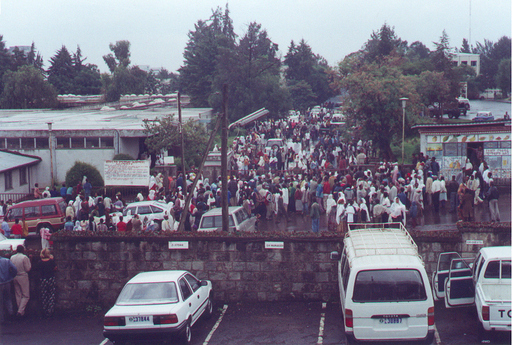Stress and burnout are recognized themes in medical missions. One source of stress is the sheer magnitude of physical needs; one billion people in our world have no access to a trained health worker and healthcare workers often stand in the gap.
In the face of overwhelming need how do we maintain healthy margins? Overextended, we lose our compassion, damage relationships, and often leave our fields of service early. Yet, the pressure is there, since the patients show up, the children are literally dying, and there is often no alternative for those who are the most marginalized. Wouldn’t Jesus have compassion on the sick and dying?
In the late 1980s I was in a similar situation in southern Ethiopia, where I was called to lead a small team to treat patients dying among the Mursi tribe; hundreds were dying around us from meningococcal meningitis. While we had some effective antibiotics we couldn’t get ahead of the need – patients were dying faster than we could treat them. In our case, the answer was not so difficult, as the Ethiopian ministry of health asked us to bring along their workers and meningitis vaccine; thus we were both able to save many who were ill, but also prevent new cases with vaccine. Caring for the ill and prevention went hand in hand – with a team approach.
But what about a hospital or clinic where the people come each day and yet the facility and staff are still overwhelmed?
One approach has been to assign numbers to non-emergency patients to limit those who can be seen on a given day. Other barriers have been erected, such as raising fees – although this limits care to those who are most vulnerable and thus tends to defeat our purpose. Outpatient clinic hours can be trimmed. Specialty clinics can be opened only certain days. All these efforts are ways of establishing boundaries and limits. Some are needed; some are painful.
Yet, our hearts as medical providers are driven by compassion; we want to see as many as possible. Compassion is from the Lord, and our instincts may be noble. But unexamined assumptions may contribute to our own burnout and long term lack of fruitfulness.
As medical healthcare workers and missionaries, do we recognize our own limits and vulnerabilities? Or are we driven by a “Savior” complex where we must be the answer to everyone’s need? Do we allow the needs to constitute our call, or does Jesus Christ shape the call? If we are called and empowered by Him (as the true vine) then we (as his branches) can only produce eternal fruit as we allow Him to work through us. Yes, this kind of ministry can be overwhelming, even impossible. Are we connected to Him as the vine well enough that the life-giving grace of God gives us wisdom and strength? Or have we subtly become “the vine” ourselves in the midst of the needs?
We do want to give our lives for others. Good. But our own wisdom and strength quickly fades and we must come to Christ and His word. We might have the desire to “burn out for Jesus” but taken to the extreme we will damage our family and other relationships. Exhaustion and callousness on a chronic basis are not the ‘living stream of water’ that Jesus promised would come from our hearts!
What is our ultimate purpose in medical missions? It is to glorify Jesus Christ. We become like a seed which falls into the ground; it must die and spring up with new life. My hospital, my program, my health teaching – these are all means God uses to show His character through suffering and healing, to make disciples, to enable others to connect to the vine – ultimately serving others by God’s grace.
We must reflect on this ‘Me-first’ mentality. Do we assume that these health ministries are about us and our ability? That’s a prescription for the prosperity gospel! Let’s not promote a false gospel based on our works rather than grace.
The ultimate purpose is to establish God’s reign, God’s kingdom on earth – or some small signpost of the kingdom in a broken and twisted world. We can make a real difference. However it is not by our trying hard enough, but by abiding in the Vine. We don’t want to plant our program; we want to plant the mission of Jesus.
Health is not just about the physical needs of those who come to us, but about their social, economic and relational needs. I fear that too often we apply a Western mindset [think separation of physical from spiritual/non-physical reality]. One way of creating more helpful margins is to actually involve local staff and others from churches and community in the care of those who come to us – enabling them to connect with our programs as whole people, not just disease conditions.
This takes building leadership for healthcare missions, not just adding medical practitioners.
Eventually this means we work with local doctors, community, nurses, churches, believers – to build healing communities. Only through teamwork can we begin to meet the overwhelming needs of those around us in a deeper way. And yet in this way – as we die to our own ambitions – we are enabling others to see and to know and to serve the Lord Jesus Christ. He is the King and Savior and healer and He is building His kingdom. We get the privilege to be a small part of His work. He is worthy!


Leave a Reply